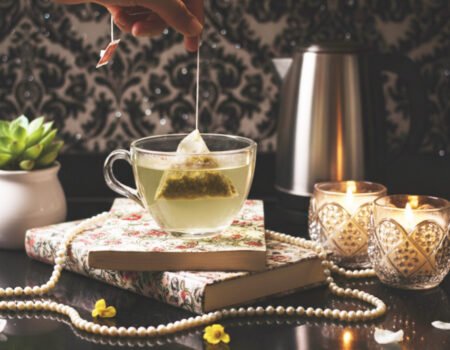
Types of Herbal Tea: A Comprehensive Guide to all Herbal Tea Varieties
Index
Index
Herbal teas aren’t true teas. Unlike black or green tea, herbal teas contain no caffeine and come from plants other than Camellia sinensis. These plant-based drinks offer diverse flavors and aromas that have captivated tea drinkers across cultures for centuries.
This guide breaks down the main herbal tea types by their plant parts, flavor profiles, and cultural traditions. You’ll learn how to choose quality herbs and master brewing techniques for the perfect cup.
Ready to expand your tea knowledge?
Key Takeaways
- Herbal teas come from plants other than Camellia sinensis and (usually) contain no caffeine, unlike true teas like black or green varieties.
- Different plant parts create distinct flavors – leaves offer bright notes, flowers provide delicate aromas, roots deliver earthy tastes, and bark contributes woody flavors.
- Popular single-herb varieties include chamomile (known for its honey-like sweetness), peppermint (offers cooling freshness), rooibos (delivers earthy sweetness), and hibiscus (provides tart, cranberry-like notes).
- Brewing methods vary by plant type – flowers need 5-7 minutes at 200°F / 90°C, while roots may require decoction (simmering for 15-30 minutes) to extract full benefits.
- Research from Qianxinan, Guizhou Province documented 114 different herbal tea species used in traditional tea culture, showcasing the incredible diversity of plants used for brewing.
Herbal Tea Basics
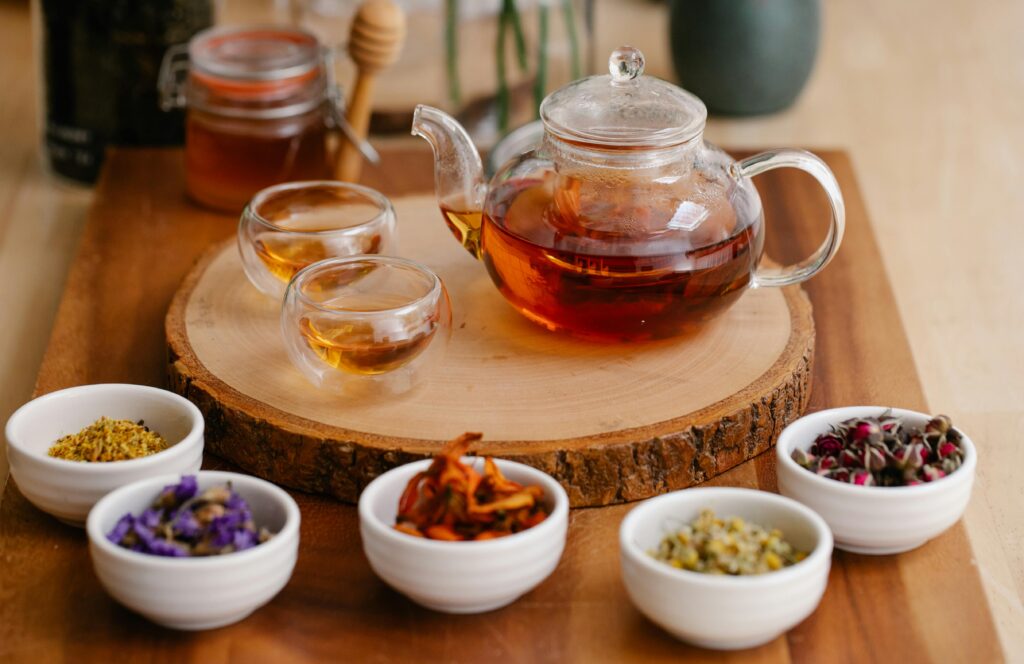
Herbal tea opens a world of flavors beyond the standard black, green, and white teas. These plant-based drinks skip the Camellia sinensis leaf entirely, creating caffeine-free options from flowers, roots, and fruits instead.
Understanding What Makes Tea “Herbal”
True herbal tea comes from plants other than Camellia sinensis – the source of black, green, white, and oolong varieties. These caffeine-free drinks consist of dried flowers, roots, leaves, or bark steeped in hot water.
Many people call them tisanes to distinguish them from traditional tea leaves. Popular options like chamomile, peppermint, and rooibos offer distinct flavors and aromatic profiles, all naturally caffeine-free.
The preparation method for herbal infusions differs slightly from true teas. Most herbal varieties need longer steeping times (5-10 minutes) to extract full flavor and beneficial compounds.
Water temperature also matters – delicate flowers like chamomile prefer cooler water around 175-185°F (80-85°C), while tough roots and bark typically need near-boiling water (205-212°F / 95–100.0°C). This careful brewing process helps release the unique taste profiles and aromatic compounds that make each herbal tea special.
Growing your own herbal tea plants offers a fresh supply of ingredients right at home. Even small spaces like window sills can support herbs like holy basil, peppermint, and chamomile.
These plants thrive in containers and provide vibrant flavors superior to store-bought options. Next, we’ll explore how herbal tea fits into the broader tea world and what makes it distinct from traditional varieties.
Note on Traditional Uses: Many herbal teas carry centuries of traditional wellness associations. While this guide focuses on flavors, preparation, and cultural significance, we recognize these traditional contexts are part of herbal tea’s heritage. Any health-related decisions should involve qualified healthcare providers.
Herbal Tea’s Place in the Tea World
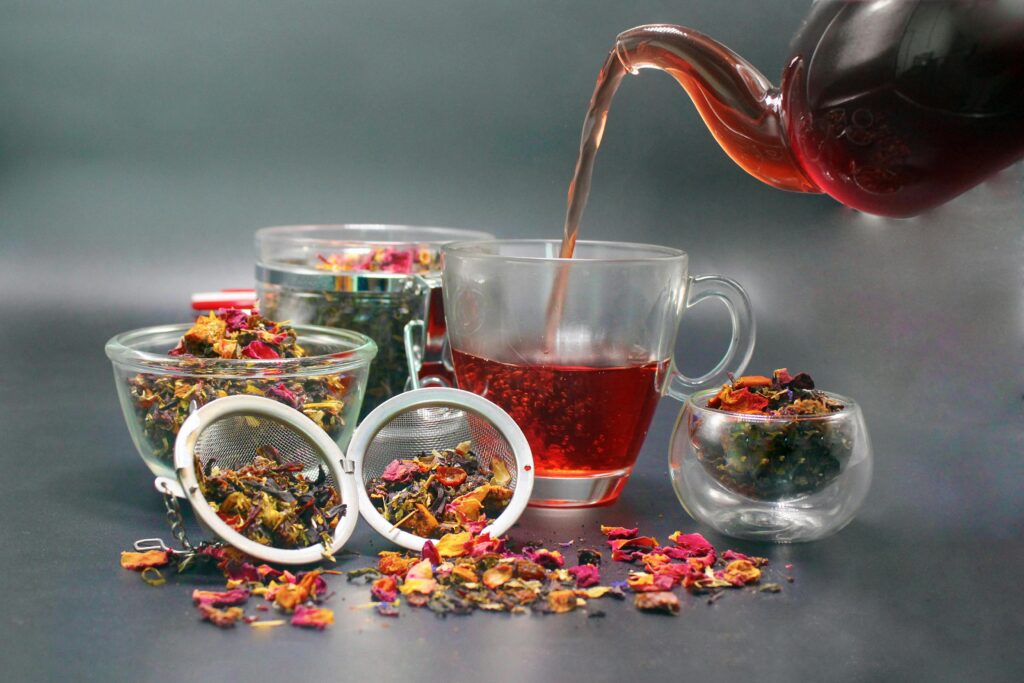
Herbal teas stand apart from true teas in the global beverage landscape. Unlike black, green, oolong, or white varieties that come from the Camellia sinensis plant, herbal infusions derive from diverse plant species.
Research from Qianxinan, Guizhou Province documented 114 different herbal tea species used locally, showing the vast range of options beyond traditional teas. These plant-based drinks occupy a unique position as both refreshment and remedy, with 33 recognized medicinal functions including heat-clearing and diuretic properties.
The processing methods greatly impact herbal tea characteristics. Fixation and fermentation techniques alter flavor profiles, aroma, and therapeutic benefits in ways similar to true tea processing.
Many popular varieties like chamomile, peppermint, and rooibos have gained worldwide popularity for their distinct tastes and health properties. Rooibos, grown exclusively in South Africa, offers a caffeine-free alternative rich in antioxidants, while hibiscus provides tart notes and vitamin C.
These plant infusions bridge cultural traditions with modern wellness trends.
Exotic herbal plants contribute significantly to the tea world’s diversity. Scientists have identified 11 exotic species with notable therapeutic qualities, expanding the global tea palette.
The preparation methods for these botanical brews differ from true teas, often requiring longer steeping times or specific temperature considerations to extract optimal flavor and benefits.
Next, we’ll explore what specifically makes a beverage qualify as “herbal tea” and examine key preparation techniques.
Key Preparation Methods
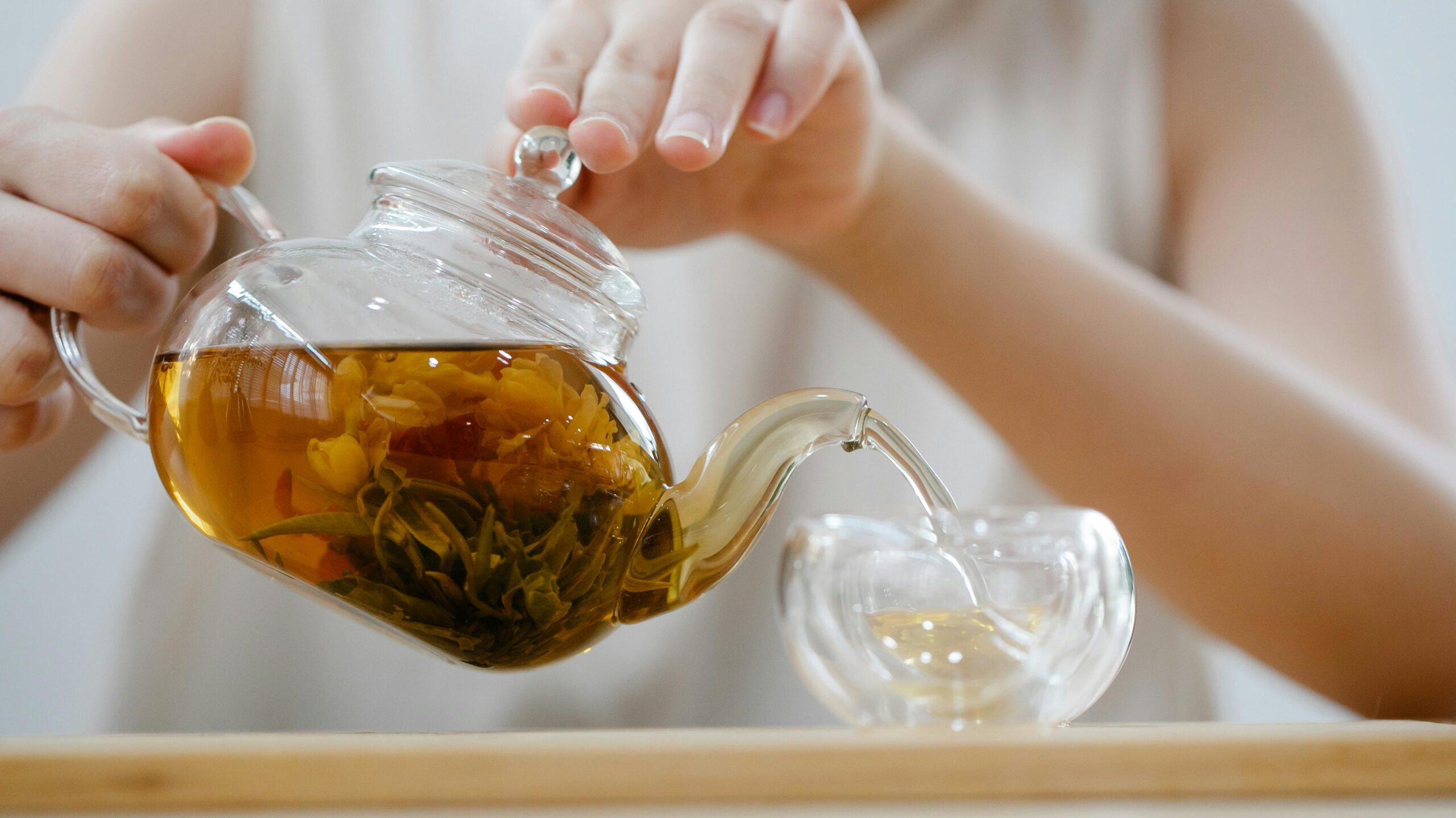
Brewing herbal tea requires specific techniques to extract the full flavor and benefits. These methods differ from true tea preparation and can enhance your tea drinking experience.
- Hot Infusion – Pour water heated to 212°F (boiling) over herbs and steep for 15-20 minutes to extract flavors and properties from leaves and flowers.
- Cold Infusion – Place herbs in room temperature water and refrigerate for 4-8 hours, creating a milder taste perfect for delicate herbs like mint or lemon balm.
- Decoction – Simmer roots, bark, or seeds in water for 15-30 minutes to extract deeper compounds, ideal for tougher plant materials like ginger or cinnamon.
- Sun Tea Method – Fill a glass jar with herbs and water, then place in direct sunlight for 3-4 hours, creating a gentle extraction process.
- Measured Proportions – Use 1 tablespoon of dried herbs per 8 oz of water for consistent results, adjusting to personal taste preferences.
- Covered Steeping – Keep your tea vessel covered during steeping to prevent volatile oils from escaping, preserving aromatic compounds.
- Straining Techniques – Use fine mesh strainers or tea infusers to separate plant material from liquid after steeping is complete.
- Sweetening Options – Add honey, sugar, or stevia after brewing rather than during to better control sweetness levels.
- Blending Methods – Combine different herbs in equal parts or follow the “3 Ps” principle: person, plants, and purpose to create custom blends.
- Storage Practices – Store brewed herbal tea in glass containers in the refrigerator for up to 48 hours to maintain freshness and flavor.
Understanding what makes a tea “herbal” helps explain why these preparation methods differ from those used for true teas like black or green varieties.
Difference from True Teas

Now that you know how to prepare herbal teas properly, let’s explore what makes them different from true teas. Herbal teas and true teas come from completely different plants. True teas (black, green, white, oolong, and pu-erh) all come from the Camellia sinensis plant.
Herbal teas, or tisanes, come from various other plants, fruits, flowers, or roots instead.
The biggest difference lies in caffeine content and processing. True teas naturally contain caffeine, while herbal teas are naturally caffeine-free. True teas also undergo oxidation—a chemical process that changes their color and flavor profile.
Black tea is fully oxidized, while white tea is the least processed type. Herbal teas skip this oxidation process entirely, maintaining their original plant properties and offering unique health benefits like anti-inflammatory effects or sleep support.
OXO Brew Tea Infuser Basket
Roomy basket design gives herbal teas space to expand, extracting full flavor without sediment.
Herbal teas demand more room to breathe than their true tea cousins—those chamomile flowers and peppermint leaves need space to unfurl and release their volatile oils. This basket-style infuser gives herbs the expansion room they crave, with 12 reviewers specifically praising how it lets leaves bloom fully. The lid traps steam and aromatics while doubling as a drip tray, making the transition from steeping to sipping clean and simple.
⚠️ Skip this if you need travel-ready gear or absolute zero sediment—it's designed for home brewing, not portability, and ultra-fine particles from crushed herbs may pass the mesh.
Types of Herbal Tea by Plant Part

Herbal teas come from different plant parts that each bring unique flavors and benefits to your cup – from calming leaf tisanes like mint to sweet floral brews such as chamomile, earthy root infusions like ginger, and rich bark teas like cinnamon – discover how each plant part creates its own tea personality!
Leaf-Based Tisanes
Leaf-based tisanes form the backbone of the herbal tea world, offering some of the most familiar flavors tea enthusiasts enjoy. Mint, lemon balm, and nettle stand out as popular choices that deliver both taste and potential health benefits.
Unlike true teas made from Camellia sinensis plants, these infusions come from various plant leaves steeped in hot water. The broad, flat surface area of leaves allows for quick flavor release, typically requiring just 5-7 minutes of steeping time at temperatures between 200-212°F.
Different leaf tisanes bring unique characteristics to your cup. Peppermint leaves contain essential oils that create a cooling sensation and may ease digestive discomfort. Lemon balm offers subtle citrus notes with calming properties that might reduce stress.
Moringa leaves, growing in popularity, pack impressive nutritional value with their earthy flavor profile. These leaf varieties can be enjoyed as single-herb infusions or combined with other botanicals to create complex flavor profiles that please the palate.
Flower-Based Tisanes

Flower-based herbal teas offer both stunning flavors and health benefits to tea enthusiasts. Chamomile stands out with its apple-like taste and calming properties that help people unwind after long days.
Lavender tea brings a fragrant profile to your cup while reducing stress and anxiety levels. Hibiscus creates a bright red brew with tart notes similar to cranberry and packs impressive heart benefits.
The vibrant colors and distinct tastes of these floral infusions make them popular choices for both new and experienced tea drinkers. Hibiscus particularly shines in research studies showing its ability to lower blood pressure, reduce bad cholesterol, and support weight management goals.
Each flower contributes unique compounds that affect both flavor and wellness properties, making these tisanes valuable additions to any tea collection.
Root-Based Tisanes
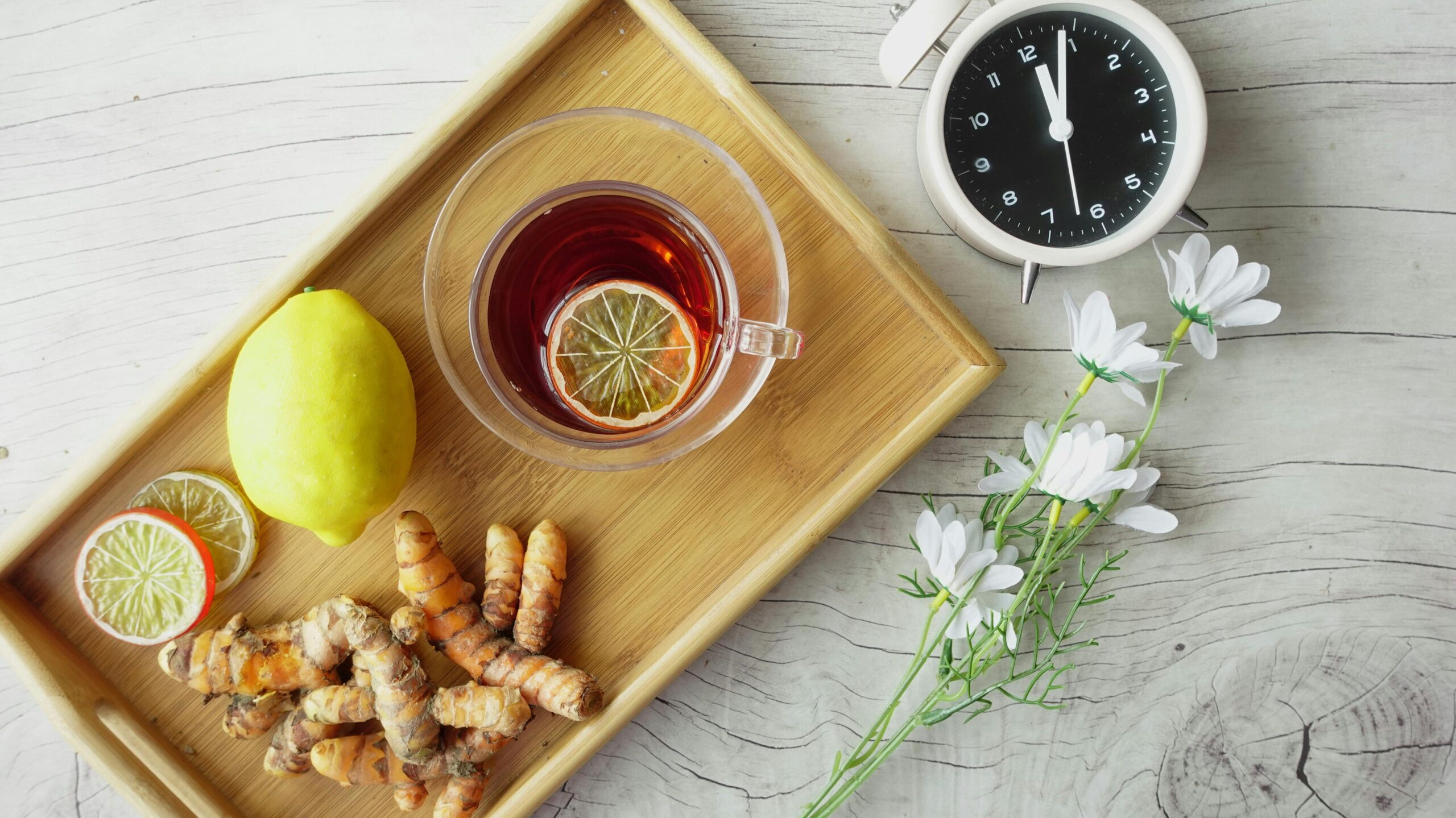
While flower-based tisanes offer delicate floral notes, root-based herbal teas deliver deeper, more robust flavor profiles with powerful health benefits. Ginger root creates a spicy, warming brew that soothes upset stomachs and reduces nausea—making it especially helpful for morning sickness.
Licorice root produces a naturally sweet tea that coats and relieves irritated throats without added sugars. Turmeric root, with its earthy taste and bright golden color, contains curcumin that fights inflammation throughout the body.
These underground plant parts store concentrated compounds that release during steeping. Root tisanes often need longer brewing times or even decoction methods (simmering rather than steeping) to extract their full medicinal properties.
Unlike leaf teas that steep quickly, roots require patience but reward drinkers with potent flavors and therapeutic effects. Many tea enthusiasts appreciate these hearty brews during cold seasons for their warming qualities and immune support.
Bark-Based Tisanes

Bark-based tisanes form a distinct category in the herbal tea world, each linked to specific parts of plants that offer unique flavors. Many specialty tea shops offer bark-based tisanes, all completely caffeine-free and known to promote relaxation after a long day.
These tisanes come from the outer layers of trees and shrubs, creating drinks with deep, woody notes that differ from leaf or flower teas.
The presentation of bark tisanes matters greatly for the full tea experience. Cinnamon bark creates a warm, spicy brew that many find comforting during cold weather. Other popular choices include slippery elm and wild cherry bark, each bringing their own character to your cup.
These can be included in custom tea collections based on what you prefer, allowing you to mix them with other herbal varieties for balance.
The Role of Plant Parts in Flavor
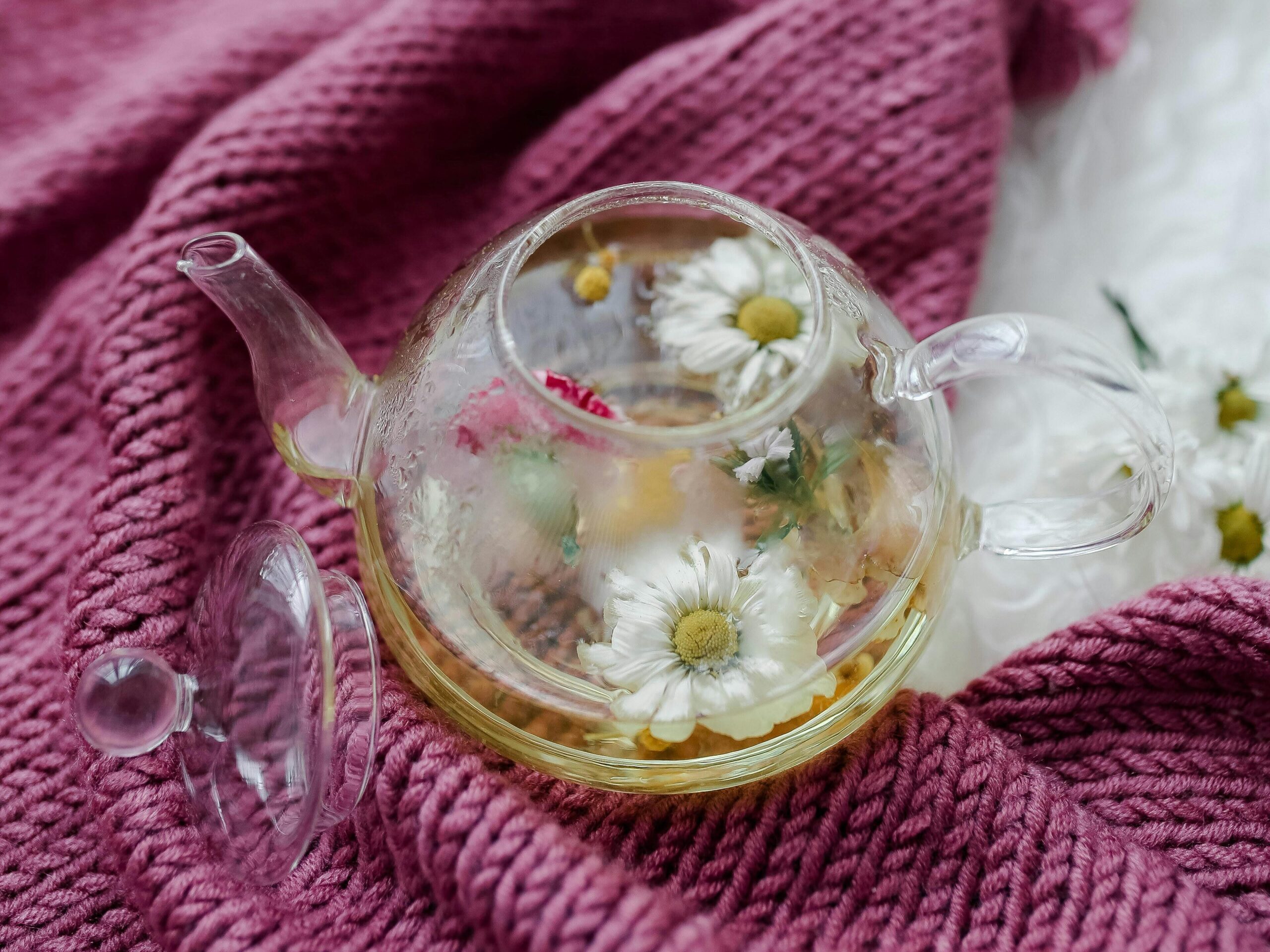
Moving from bark-based tisanes to the broader concept of plant parts, we need to understand how each component creates distinct flavor profiles. Different sections of plants contribute unique tastes to your cup.
Leaves often deliver bright, grassy notes while flowers add delicate, aromatic qualities. Roots typically provide earthy, deep flavors that ground the tea experience. Bark elements bring woody, sometimes spicy dimensions that can’t be found in other plant parts.
Plant parts contain different levels of essential oils and compounds that directly impact taste. Higher-grade herbal teas use whole flowers or leaves instead of broken pieces because they retain more natural oils.
These oils hold the key flavor essences that make each herbal tea unique. The concentration of these compounds varies greatly between fresh and dried plant materials, creating different flavor intensities.
Tea enthusiasts learn to identify which plant parts create specific taste experiences. Chamomile flowers offer honey-like sweetness, while peppermint leaves provide cooling menthol notes.
Ginger root adds spicy warmth, and cinnamon bark brings sweet-spicy complexity. This knowledge helps you build a more refined herbal tea palate and appreciate the natural diversity in your cup.
Each plant part tells its own flavor story through the compounds it contains.
Tiesta Tea Herbal Loose Leaf Gift Box Set
Spans flowers, roots, and citrus blends for hands-on learning about herbal variety.
Understanding herbal teas means tasting the difference between flowers, leaves, and roots—each plant part brings distinct characteristics to your cup. This sampler spans that spectrum with chamomile and lavender (flowers), ginger (root), and citrus blends, giving you firsthand experience with how delicate petals differ from spicy rhizomes. Eight reviewers appreciated the variety for exactly this reason: exploration without commitment to full-size bags.
⚠️ Skip this if you crave bold, assertive flavors—these blends are deliberately delicate, designed for palate development rather than punch.
Classic Single-Herb Varieties
Single-herb teas offer pure, distinct flavors that showcase each plant’s unique character – from calming chamomile to refreshing peppermint – and serve as perfect starting points for new tea drinkers to develop their palates.
Chamomile: The Sleep Aid Classic

Chamomile stands as one of history’s most beloved herbal teas, with people enjoying over a million cups daily across the globe. This gentle flower has been cultivated and enjoyed for thousands of years, earning its place as a household favorite. The delicate, honey-sweet flavor with subtle apple notes creates a comforting experience that many tea enthusiasts associate with evening rituals.
The pale golden brew offers a soothing aroma and smooth taste that makes it perfect for quiet moments of reflection. Its naturally caffeine-free nature and mild flavor profile have made it a go-to choice for those seeking a gentle, comforting cup at any time of day.
Tea quality matters significantly with chamomile—whole flowers produce a sweeter, more apple-like flavor compared to powdered versions. For the best results, steep chamomile flowers in water just below boiling for 5-7 minutes, allowing the full range of beneficial compounds to infuse into your cup.
Peppermint: The Refreshing Standard

Peppermint tea stands as a caffeine-free favorite in the herbal tea world. This bright, cooling brew delivers an instantly recognizable fresh taste that awakens the senses. Many tea fans reach for peppermint’s invigorating qualities on cold days or as a refreshing afternoon pick-me-up.
The distinct minty flavor comes from the essential oils in peppermint leaves, creating a drink with a cooling sensation and crisp finish. Its bold flavor profile makes it equally enjoyable hot or iced, and it pairs wonderfully with honey or lemon. The refreshing nature of peppermint has made it a popular choice across cultures, from Moroccan mint tea traditions to modern café offerings.
Tea enthusiasts value peppermint for its bold flavor profile and its ability to blend well with other herbs in custom tea creations.
Rooibos: The Red Bush Alternative

Rooibos tea stands out as a unique caffeine-free option from South Africa’s Cederberg region. This rich red brew captivates with its naturally sweet, vanilla-like notes and smooth finish.
Unlike true teas from the Camellia sinensis plant, rooibos comes from the Aspalathus linearis bush, giving it a distinct earthy-sweet flavor profile that many tea lovers enjoy.
The striking red color and unique taste of rooibos have made it a South African cultural icon, now enjoyed worldwide. Its natural sweetness means many people enjoy it without any additives, though it also takes well to milk and honey.
The smooth, mellow character makes it an excellent base for flavored blends, often paired with vanilla, caramel, or citrus.
The versatility of rooibos extends to how you can enjoy it – plain, with honey, milk, or as part of complex tea blends. Its naturally sweet taste works well both hot and cold, making it perfect for any season.
Hibiscus tea offers another vibrant option for those exploring the colorful world of herbal infusions.
Hibiscus: The Tart Traditional

Hibiscus tea stands out with its deep ruby color and tart flavor profile that many tea fans compare to cranberry. Made from the calyces of Hibiscus sabdariffa or Hibiscus rosasinensis, this caffeine-free drink delivers a bold, fruity taste with natural tartness.
This vibrant beverage shines in both hot and cold preparations, making it a versatile choice year-round. Its striking color and refreshing tartness have made it popular in many cultures – from the Caribbean’s sorrel drink to North Africa’s karkade. The bright, tangy flavor pairs beautifully with citrus, ginger, or a touch of sweetener.
The bright taste makes it perfect for both hot brewing and cold infusions, especially during summer months when its refreshing qualities shine brightest.
Understanding Single-Herb Characteristics
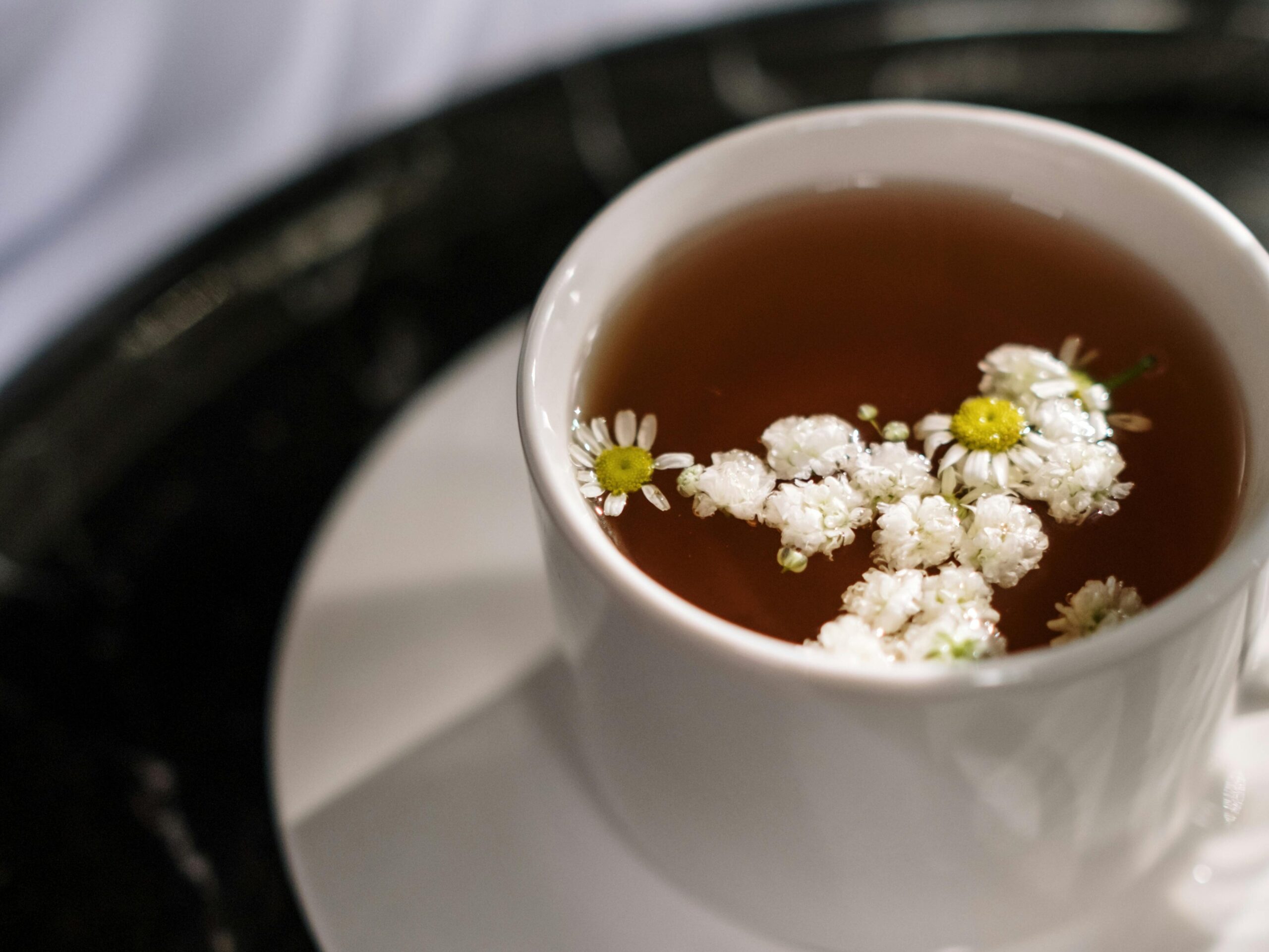
Beyond hibiscus’s tart profile lies a world of distinct single-herb characteristics that define each herbal tea. Single herbs showcase unique flavor profiles and benefits based on their origin, plant part, and growing conditions.
Chamomile delivers sweet, floral notes with calming effects, while cinnamon bark offers a sweet-spicy profile that warms the palate. Ginger root brings a spicy kick from its pale yellow stem, popular in many Asian blends.
Rooibos stands out with its mild, earthy sweetness in both red and green forms from South Africa.
Each herb carries its own signature traits much like wine varieties. The flavor depth varies based on harvest time, drying methods, and storage conditions. True tea lovers learn to spot these subtle differences through careful tasting.
Each single herb showcases unique aromatic compounds and flavor molecules. Quality single-herb teas need proper brewing temperatures and times to extract their full flavor potential and create the most enjoyable taste experience.
Rooibos Rocks Organic Red Rooibos Tea
South African authenticity with natural sweetness—forgiving enough to steep without watching the clock.
Rooibos—the red bush from South Africa's Cederberg mountains—delivers naturally sweet, earthy notes without a trace of caffeine. This organic version earns praise for authentic flavor: smooth with subtle vanilla undertones and a full body that 6 reviewers specifically mentioned. Fifteen reviewers highlighted the caffeine-free aspect, making it equally suited for morning ritual or bedtime wind-down.
⚠️ Skip this if you're committed to loose leaf brewing—tea bags limit extraction compared to full-leaf rooibos, though the convenience may outweigh that for casual drinking.
Traditional Herbal Blends
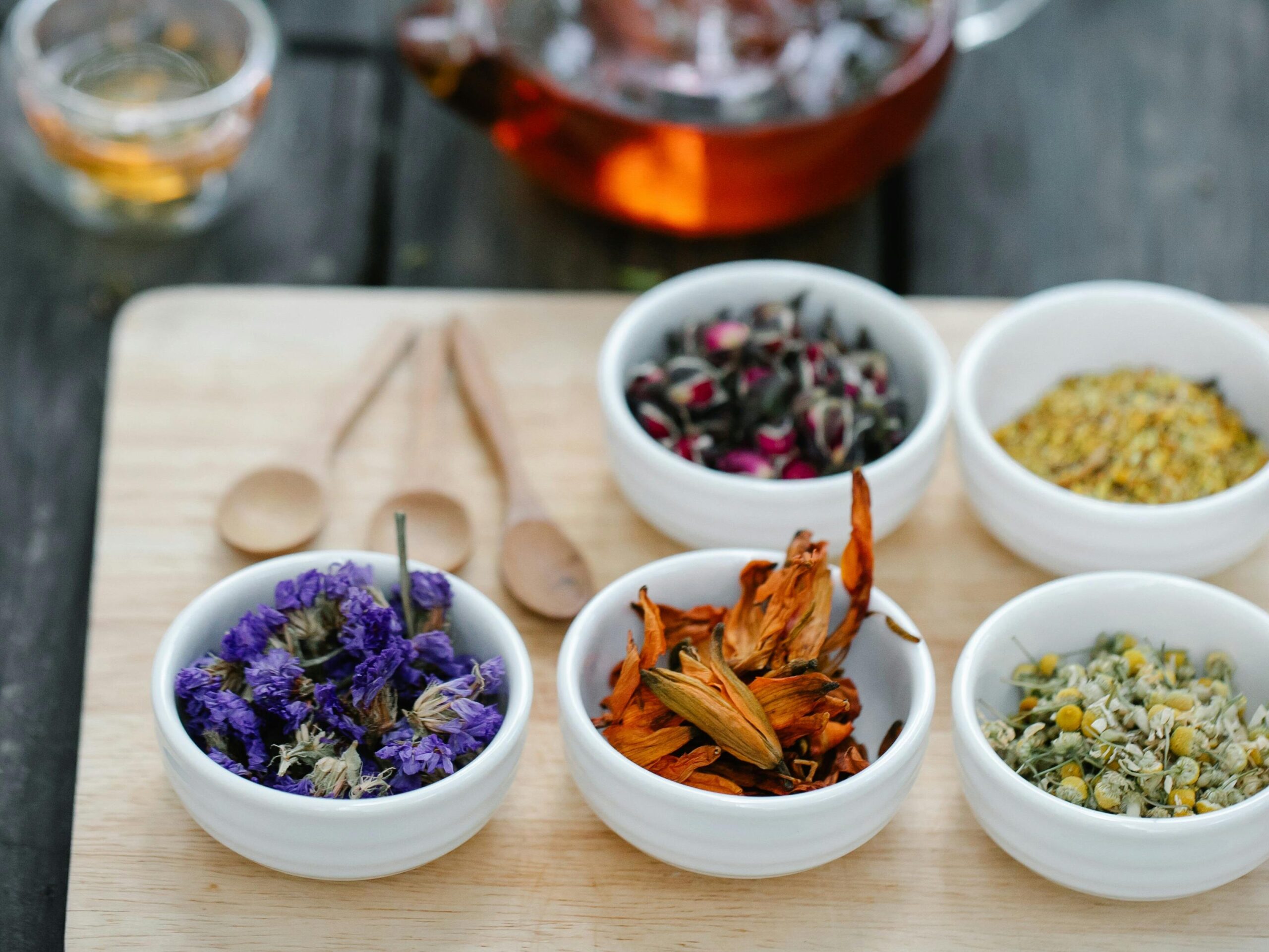
Traditional herbal blends showcase rich cultural histories from around the world, with each region adding its own twist to these time-honored recipes. From the soothing mint teas of Morocco to the earthy rooibos blends of South Africa, these classic combinations offer more than just flavor – they connect us to ancient wisdom and healing practices.
Join us next time as we explore how European, African, and Latin American cultures have shaped the herbal tea traditions we enjoy today.
European Blending Traditions
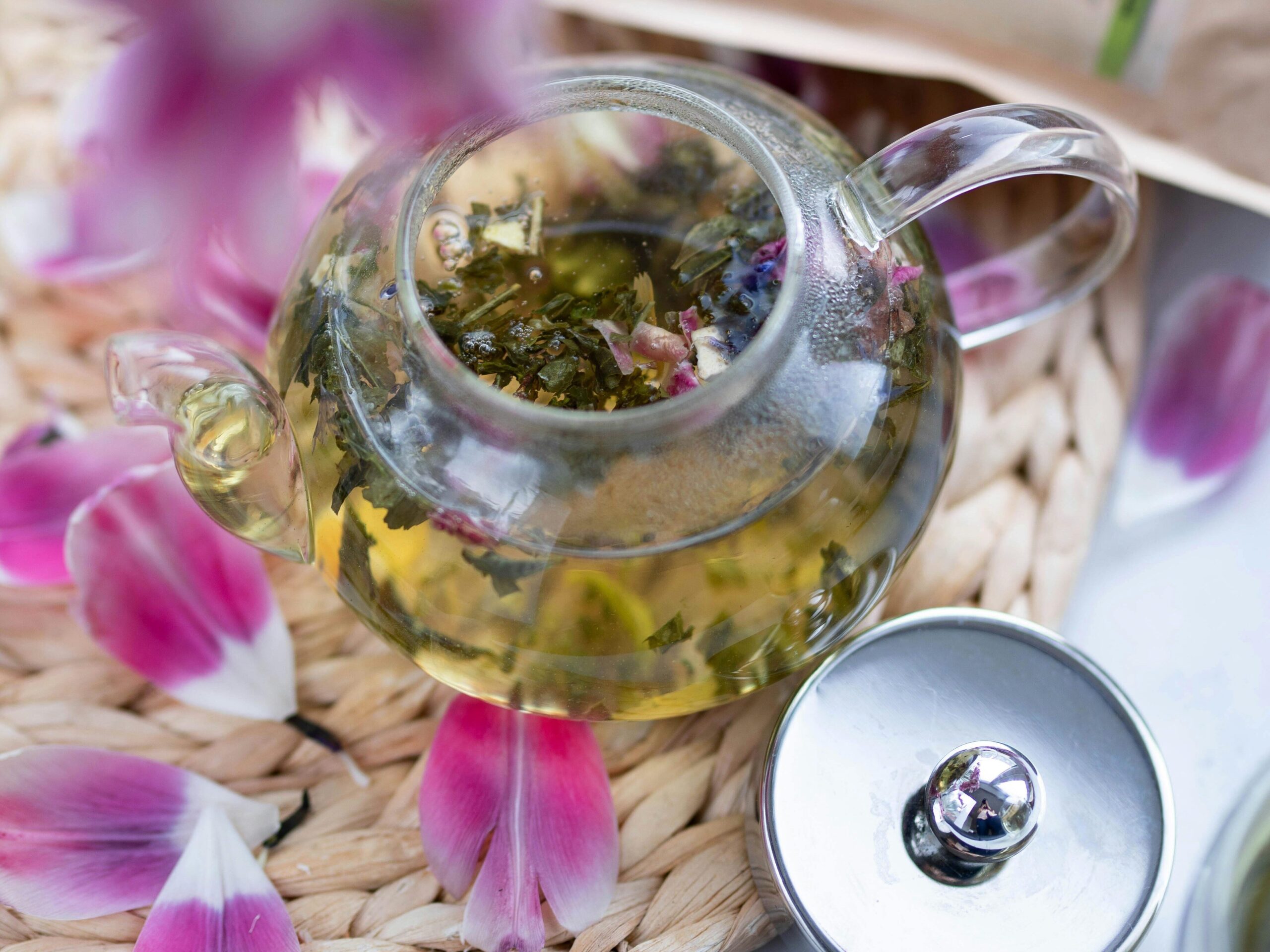
European herbal tea blending has shaped medicinal drinks for centuries. Tea makers combine chamomile, peppermint, ginger, and lavender to create unique formulas targeting specific health concerns.
Each herb brings distinct benefits – chamomile soothes sleep issues while peppermint aids digestion. These traditional blends balance flavor with wellness properties in ways that modern tea drinkers still value today.
Modern tea companies showcase these European traditions through specialized collections of herbal infusions, offering various forms including loose leaf and pyramid tea sachets that preserve the integrity of these time-honored recipes. Some companies partner with botanical gardens to add cultural depth to their European-inspired blends, connecting modern drinkers to historical tea practices.
The presentation of these teas matters greatly in European customs, with special teaware enhancing the drinking experience.
Many European blends focus on anti-inflammatory properties and antioxidant content that support overall wellness. Herbal combinations often target common ailments like indigestion, stress, and insomnia using plant parts from flowers, leaves, and roots.
The careful selection of ingredients reflects centuries of folk medicine knowledge passed through generations. These blending traditions continue to influence modern wellness-focused formulations that tea enthusiasts enjoy worldwide.
North African Mint Traditions

Moroccan mint tea stands as the crown jewel of North African tea customs, dating back to the 12th century. This famous drink blends green tea, fresh mint leaves, and sugar in a ritual that showcases both flavor and hospitality.
Tea makers rinse the leaves first, then brew with boiling water before pouring the tea from a height to create its signature froth. The serving follows a meaningful pattern – three cups represent life, love, and death, with each round offering a different taste experience.
The cultural impact of this mint tradition grew significantly in the 19th century when mint became a standard ingredient. Today, this beverage remains central to social gatherings across North Africa, where refusing a cup might seem impolite.
The careful preparation process varies slightly between regions, with some areas adding pine nuts, wormwood, or lemon verbena to create unique local versions. South African rooibos styles offer another fascinating approach to herbal tea traditions with their own distinct preparation methods.
South African Rooibos Styles

South African rooibos comes in two main styles: fermented (red) and unfermented (green). Red rooibos offers a sweet, nutty flavor that many tea fans enjoy with milk or honey. Green rooibos packs more antioxidants than its red cousin, making it popular among health-focused drinkers.
Both varieties grow only in South Africa’s Western Cape region, where the unique climate creates perfect conditions for this caffeine-free bush.
Research shows rooibos does more than taste good – it helps fight oxidative stress and may improve glucose tolerance. Many South Africans drink rooibos to manage type 2 diabetes symptoms, as studies suggest it helps regulate blood sugar levels.
Traditional blends often mix rooibos with local herbs like honeybush or buchu for added benefits. Next, we’ll explore how Latin American mate culture differs from these African tea traditions.
Latin American Mate Culture

While South African rooibos brings earthy sweetness to the tea world, across the Atlantic, another herbal tradition thrives with equal cultural significance. Latin American mate culture centers around yerba mate, a beverage made from the dried leaves and stems of the Ilex Paraguariensis plant.
This traditional drink unites communities across Argentina, Uruguay, Paraguay, and parts of Brazil through shared drinking rituals. Friends gather in circles, passing a hollowed gourd filled with yerba mate and sipping through a metal straw called a bombilla.
Yerba mate stands out with its distinct flavor profile that blends earthy, bitter, and herbal notes with subtle hints of chocolate, lemon, and floral tones. The preparation process varies by region but typically involves specific water temperatures and steeping methods that locals perfect through years of practice.
Many Latin Americans consume mate daily, valuing both its cultural importance and potential health benefits. Research suggests yerba mate supports weight loss, enhances physical performance, boosts immune function, and improves mood.
The social aspect of mate drinking remains central to its cultural identity. Sharing mate creates bonds between people and serves as a symbol of hospitality and friendship. Modern cafes now offer creative mate variations, but traditional preparation still dominates household consumption.
Mate drinking transcends class divisions and brings together people from all walks of life, making it more than just a beverage—it represents Latin American identity and community values.
Traditional Medicinal Combinations

Moving from mate’s cultural significance in Latin America, we find similar depth in traditional medicinal tea blends across cultures.
These traditional mixtures often contain up to forty ingredients, known as “sarantha” in Greek and “arbain” in Arabic. Such complex formulations draw from five main flower families: Rosaceae, Asteraceae, Lamiaceae, Malvaceae, and Fabaceae.
Each plant contributes specific flavor notes and aromatic qualities, creating sophisticated taste profiles that have been refined over generations.
Modern commercial teas rarely match the complexity of these traditional blends. Most store-bought wellness teas contain fewer herbs than their historical counterparts. This simplification happens because mass production favors standardization over traditional knowledge.
The flowers and herbs in these ancient recipes work together to boost their healing effects – what herbalists call synergy. Chamomile pairs with passionflower for deeper relaxation, while peppermint combines with ginger to better soothe stomach pain.
These time-tested blends showcase the art of flavor balancing with remarkable sophistication. Master blenders understand how different plant parts – from roots to blossoms – contribute varying taste elements: bitterness, sweetness, astringency, and aromatic oils.
The complexity of traditional formulas reflects centuries of cultural refinement, where each ingredient plays a role in the overall sensory experience.
Specialty Categories
Specialty herbal teas go beyond basic blends to serve specific needs, from stress-fighting adaptogens to seasonal mixes that match the weather outside – discover how these targeted tea types can transform your daily ritual.
Adaptogenic Blends

Adaptogenic herbs form a special category defined by traditional herbalism and the scientific term coined in 1947. This group includes ashwagandha, rhodiola, turmeric, reishi mushroom, licorice root, and tulsi (holy basil), which have been traditionally used in various cultures for their perceived effects on stress and balance. While research into these traditional uses continues, many tea drinkers appreciate these herbs for their complex, often earthy flavor profiles.
The robust flavors of adaptogenic herbs require thoughtful blending. Ashwagandha brings bitter, horse-like notes (true to its Sanskrit name meaning “smell of horse”), while tulsi offers clove-like spiciness. Reishi mushroom’s woody bitterness pairs well with sweet spices like cinnamon, and rhodiola adds a subtle rose-like quality. Modern tea shops create adaptogenic blends that balance these strong flavors while honoring their traditional contexts.
Wellness-Focused Formulations

Wellness-focused teas represent a category where traditional herbal knowledge meets modern tea culture. These blends often combine herbs that have been used in folk traditions for centuries – ginger for its warming qualities, elderberry in seasonal preparations, and dandelion as a spring tonic. While many people choose these blends based on traditional associations, they also offer interesting flavor journeys.
Popular combinations reflect both cultural traditions and taste harmony. Evening blends might pair chamomile with passionflower – a combination rooted in European herbal traditions that also creates a pleasantly mild, honey-sweet cup. After-dinner blends often feature the classic pairing of peppermint and ginger, which many cultures have traditionally enjoyed following meals. Understanding these traditional contexts adds depth to the tea experience without requiring belief in specific effects.
Tea makers now craft these formulations based on both traditional herbal medicine and modern nutritional science. Quality matters tremendously with wellness teas – the freshness, purity, and proper sourcing of ingredients directly impact their effectiveness.
The best blends balance therapeutic properties with pleasant flavor profiles, making healthy choices more enjoyable. Next, we’ll explore how seasonal blends adapt to changing weather patterns and body needs throughout the year.
Seasonal Blends

Beyond wellness formulations, tea lovers often seek options that match the changing seasons. Seasonal blends from companies like Tea Fort capture the essence of each time of year through careful ingredient selection.
Their Spring Tea combines floral, fruity, and herbal notes that mirror the fresh rebirth of nature. These special mixes aren’t random – they connect us to natural cycles through taste and aroma.
Seasonal teas offer delightful flavor variety that mirrors nature’s cycles. Each blend captures the essence of its season through carefully chosen ingredients. Winter blends might feature warming spices like cinnamon and clove alongside robust flavors, while summer options showcase refreshing herbs like mint or the bright tartness of hibiscus.
Tea Fort and similar companies craft these collections with both taste and function in mind, making them practical additions to your tea cabinet.
The presentation of seasonal blends deserves special attention too. Tea Fort suggests individual tea service for these special varieties, enhancing the experience beyond just drinking.
Many tea enthusiasts subscribe to seasonal blend programs where they receive customized quantities on a regular schedule. This approach lets you explore the full range of flavors each season brings while maintaining a fresh and exciting tea routine throughout the year.
Therapeutic Combinations

Therapeutic herbal tea blends combine specific plants to target health concerns more effectively than single herbs. Many traditional formulas pair anti-inflammatory herbs like turmeric with black pepper to boost absorption, or mix chamomile with valerian root for stronger sleep support.
These combinations often follow ancient wisdom from Chinese, Ayurvedic, and European herbal traditions that have stood the test of time.
Modern therapeutic blends might include dandelion and milk thistle for liver support or hibiscus with hawthorn for heart health. Tea enthusiasts can find these formulations as pre-made blends or create custom mixes at home.
The key lies in understanding how different plant compounds work together – some boost each other’s effects, while others help reduce unwanted side effects. Quality matters greatly with therapeutic teas, as the medicinal benefits depend on fresh, properly sourced herbs.
Modern Craft Blends
Beyond therapeutic blends, tea artisans now create modern craft blends that push flavor boundaries while maintaining wellness benefits. These innovative mixtures often combine unexpected ingredients like butterfly pea flower with bergamot orange or hibiscus with spices found in masala chai.
Small-batch producers across the United States and Europe lead this movement, focusing on seasonal ingredients and unique flavor profiles not found in mass-market options.
Tea enthusiasts appreciate these craft blends for their complex taste experiences and attention to quality. Many craft blenders source directly from specific regions like Yunnan or South America, ensuring freshness and supporting sustainable farming practices.
Several comprehensive guides are available for those wanting to explore these creative infusions that balance tradition with modern taste preferences.
Yogi Vanilla Spice Perfect Energy Tea
Makes bitter ashwagandha approachable through vanilla-spice blending—with the caveat of caffeine content.
Adaptogens like ashwagandha carry potent bitter notes that require skillful blending to become palatable. This vanilla-spice formulation masks ashwagandha's intensity while delivering its stress-supporting properties—6 reviewers specifically praised the effective energy boost without coffee jitters. The balanced spice level makes the adaptation to adaptogenic herbs approachable rather than medicinal-tasting.
⚠️ Skip this if you need caffeine-free—the ashwagandha is blended with green and black tea bases. For purely herbal adaptogens, this is a stepping stone, not the destination.
Understanding Quality & Tasting

Learning to spot quality herbs and develop your taste buds transforms your tea experience from simple sipping to true appreciation – discover how to judge freshness, identify flavor notes, and select the finest herbs in our complete guide to herbal tea tasting.
How to Choose Quality Herbs
Quality herbal teas start with proper leaf assessment. Look for whole, intact leaves or flowers rather than crushed or powdered forms. High-grade chamomile shows complete flower heads with bright yellow centers and white petals.
Premium peppermint features full leaves with vibrant green color and strong aroma. The size, shape, and visual integrity of herbs directly impact both flavor and therapeutic value.
Freshness matters greatly in herbal tea selection. Fresh herbs release more potent aromas and contain higher levels of beneficial compounds. Check harvest dates when available, and avoid herbs with faded colors or musty smells.
Many herbs like hibiscus should maintain their deep red color, while rooibos should display a rich reddish-brown hue. Tea blending experts suggest storing herbs in airtight containers away from light to preserve their antioxidant content and essential oils.
The processing method significantly affects herb quality. Herbs dried at lower temperatures often retain more of their natural properties and flavors. Hand-processed herbs typically undergo less damage than machine-processed varieties.
Some specialty herbs like dandelion root require specific preparation techniques to maximize their benefits. The grading system for herbs considers these processing factors alongside the plant’s physical characteristics to determine overall quality and potential health effects.
Developing Your Herbal Tea Palate

Developing a refined herbal tea palate takes practice and attention to detail. Your ability to identify flavors in various tisanes will grow stronger with each thoughtful tasting session.
- Start with single-herb varieties like chamomile or peppermint to learn their distinct flavor profiles without the complexity of blends.
- Examine dry herbs before brewing, noting their color, texture, and aroma which often hints at the final taste experience.
- Water quality matters significantly – filtered water creates a cleaner canvas for tasting subtle herbal notes compared to tap water with chlorine or minerals.
- Temperature affects flavor extraction from different plant parts – flowers and leaves need cooler water (175-185°F) while roots and bark require hotter water (205-212°F).
- Brewing time changes flavor intensity – short steeps highlight delicate notes while longer infusions bring out deeper, sometimes bitter compounds.
- Create a tea journal to track your impressions, recording details about aroma, flavor, mouthfeel, and aftertaste for each herbal tea you sample.
- Try the same herb prepared different ways – hot infusion versus cold brew often yields dramatically different flavor profiles from the same plant material.
- Taste without additives first, then experiment with honey or lemon to understand how sweeteners and acids transform herbal flavors.
- Compare similar herbs across different origins – Egyptian versus Mexican chamomile offers subtle but noticeable differences worth exploring.
- Practice describing flavors using specific terms like “grassy,” “floral,” “earthy,” or “citrusy” instead of vague words like “good” or “nice.”
- Pay attention to mouthfeel characteristics such as astringency, smoothness, or thickness which contribute significantly to the overall experience.
- Notice the aftertaste or “finish” of each tea, as some herbs leave lingering impressions that evolve minutes after swallowing.
- Explore herbal teas high in antioxidants like hibiscus (roselle) or rooibos to distinguish their unique tangy or sweet profiles.
- Develop sensitivity to subtle flavor differences between fresh versus dried herbs in preparations like mint or lemon balm teas.
- Train your palate to detect the differences between various parts of the same plant – dandelion root tea tastes remarkably different from dandelion leaf tea.
Understanding quality and sourcing becomes the next crucial step after developing your herbal tea palate.
Tasting Notes and Evaluation

Once you’ve trained your palate to notice herbal tea nuances, recording tasting notes becomes a natural next step. Tasting notes capture the flavor journey from first sip to aftertaste, noting elements like floral, earthy, sweet, or spicy qualities.
Tea enthusiasts often use a simple rating system to track their preferences, marking aspects such as aroma strength, flavor complexity, and finish duration.
Professional evaluation goes deeper by examining the visual quality of dry herbs, infusion color, and mouthfeel. You might notice hibiscus tea’s bright red liquor and tart profile or chamomile’s golden hue with apple-like sweetness.
Many tea shops provide flavor wheels as helpful tools to identify and name specific taste experiences. These visual aids help bridge the gap between what you taste and how to describe it, making your herbal tea journey more rewarding.
Understanding Grades and Sources

After developing your tea tasting skills, you’ll want to understand how quality grades affect what’s in your cup. Tea grading systems sort leaves based on their size, shape, and overall quality.
The letters in grades like OP (Orange Pekoe), FOP (Flowery Orange Pekoe), and SFTGFOP (Super Fine Tippy Golden Flowery Orange Pekoe) tell you about leaf size and tip content. Teas with more tips often deliver more refined flavors with subtle notes that tea lovers prize.
Your source matters just as much as the grade. Different regions produce distinct flavor profiles due to their unique growing conditions. Indian teas differ greatly from Chinese varieties in both taste and character.
Whole leaf teas typically offer more delicate, complex flavors while broken grades create stronger, bolder brews. This makes broken grades perfect for breakfast blends where you need that robust kick.
Many specialty shops now list both grade and origin to help you make informed choices.
Quality herbal teas follow similar patterns even without official grading systems. The best sources use whole flowers, leaves, or roots rather than powder or dust. Fresh ingredients yield brighter flavors and stronger therapeutic properties.
Look for suppliers who specify harvest dates and processing methods – this transparency usually signals higher standards. For popular options like rooibos or hibiscus, knowing whether they’re wild-harvested or cultivated can provide clues about their flavor intensity and environmental impact.
Storage and Freshness

Proper storage makes all the difference in maintaining herbal tea quality. Your tea needs an airtight container placed in a cool, dry spot away from direct light and moisture. Glass jars with tight-fitting lids or metal tins work best for keeping herbs fresh and potent.
The enemies of tea freshness include heat, humidity, strong odors, and sunlight – all of which can break down the essential oils that give herbal teas their distinct flavors.
You can judge tea freshness by examining several physical traits. Fresh herbs display vibrant colors, intact shapes, and consistent sizes with their natural texture preserved. Most herbal teas remain at peak quality for up to one year when stored correctly.
Flower-based tisanes like chamomile or hibiscus may lose their potency faster than root-based options such as ginger or turmeric. Tea enthusiasts often label their containers with purchase dates to track freshness and ensure the best possible flavor in each cup.
Tea storage methods vary across different cultures, with some traditional approaches enhancing certain herbal varieties. Next, we’ll explore the advanced preparation techniques that bring out the best in your herbal collection.
Advanced Preparation Techniques
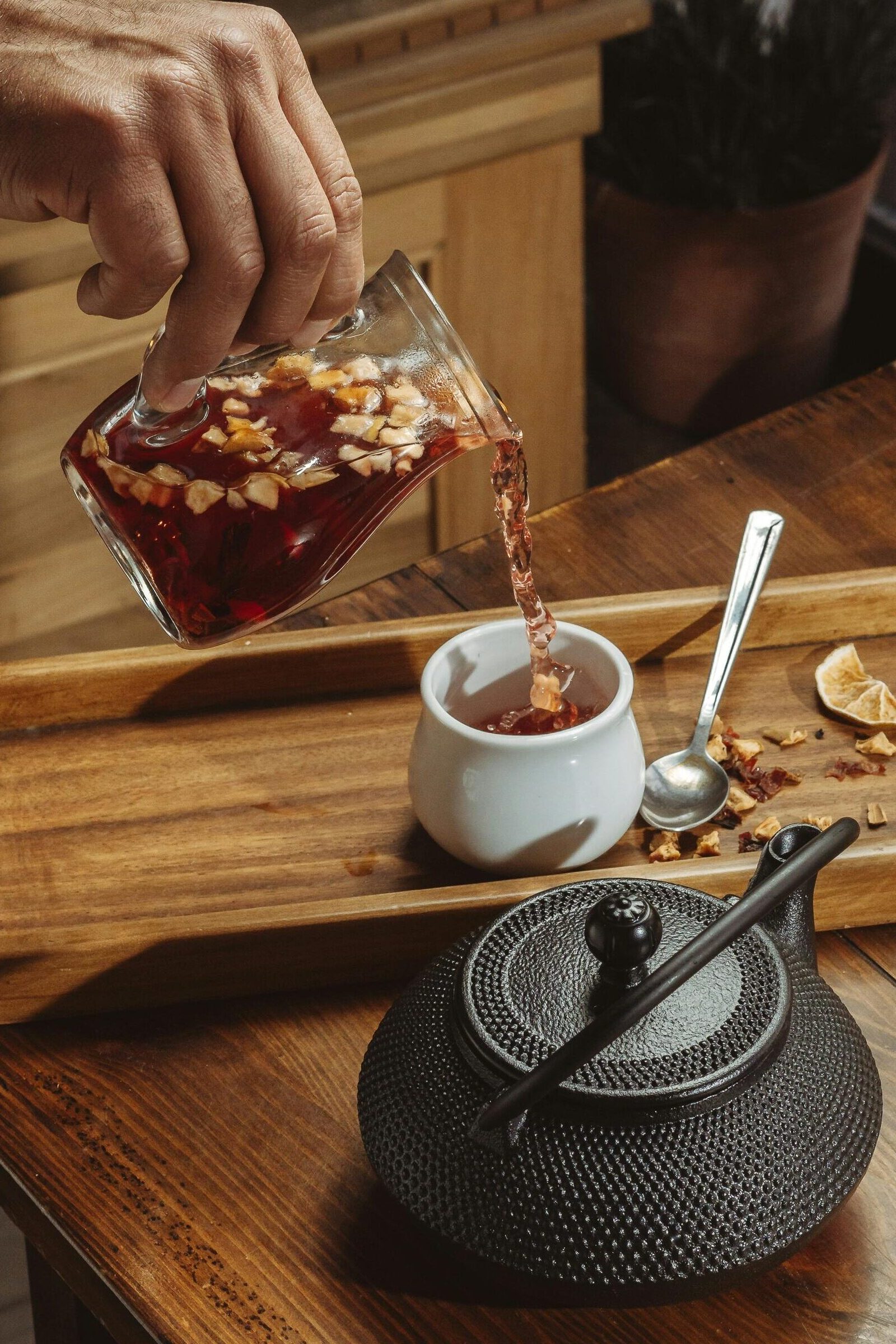
Mastering herbal tea involves more than steeping a bag in hot water—learn the exact temperatures, timing techniques, and specialized tools that transform basic brews into flavor-packed drinks with this exploration of advanced brewing methods.
Temperature and Time Control
Getting perfect herbal tea requires careful attention to water temperature and steep time. Water temperature varies by herb type – flowers and leaves typically need 175-185°F (80–85°C), while roots and bark require hotter water (205-212°F / 95–100°C). Most herbal teas steep for 5-10 minutes to release their full flavor profile.
This differs from true teas like black tea, which steeps best for around 2.5 minutes. Your tea timer becomes essential equipment here – even thirty seconds too long can turn a delightful hibiscus tea bitter or make chamomile lose its gentle sweetness.
The leaf-to-water ratio also plays a crucial role in creating balanced herbal infusions. For flower-based tisanes like butterfly pea or roselle, you’ll need fewer dried petals than you would leaves for a mint tea.
Many tea enthusiasts keep notes on their favorite ratios, as each herbal variety responds differently to water contact. Delicate blends with cinnamon or other spices often benefit from precise timing to prevent overpowering flavors from dominating the cup.
Hot vs Cold Infusion Methods
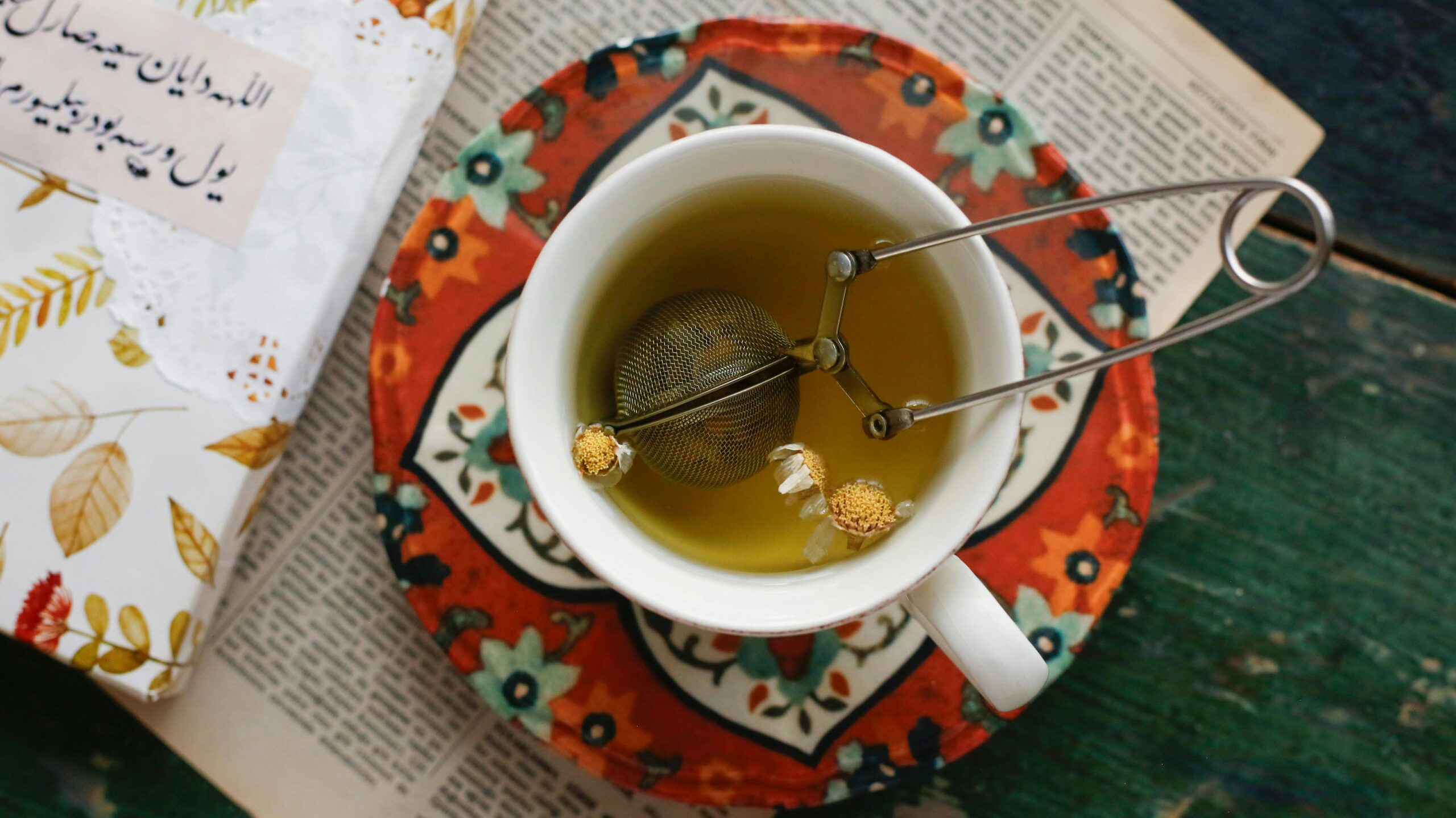
Temperature control sets the stage for two distinct brewing approaches: hot and cold infusions. These methods extract different compounds from herbs, creating unique flavor profiles and health benefits.
Hot infusions work by swelling plant tissues, which releases a wide range of constituents into your cup. This traditional approach works well for most leaf and flower tisanes like chamomile.
Cold infusions offer a gentler extraction process, perfect for delicate herbs and summer refreshment. The process pulls out different plant compounds than heat-based methods. For cold brews, experiment with different herb-to-water ratios to find your preferred strength, as optimal amounts vary by herb type.
Peppermint, chamomile, and marshmallow root respond particularly well to this technique, producing smooth, less bitter flavors with reduced tannin release.
Each method serves specific purposes in the tea enthusiast’s toolkit. Hot water quickly extracts bold flavors and therapeutic compounds from bark-based tisanes and roots. Cold water preserves heat-sensitive components while minimizing bitter notes in flower-based drinks like hibiscus.
Many tea lovers keep both methods in their regular practice, switching between them based on the season, desired flavor intensity, and specific wellness goals.
Decoction Techniques
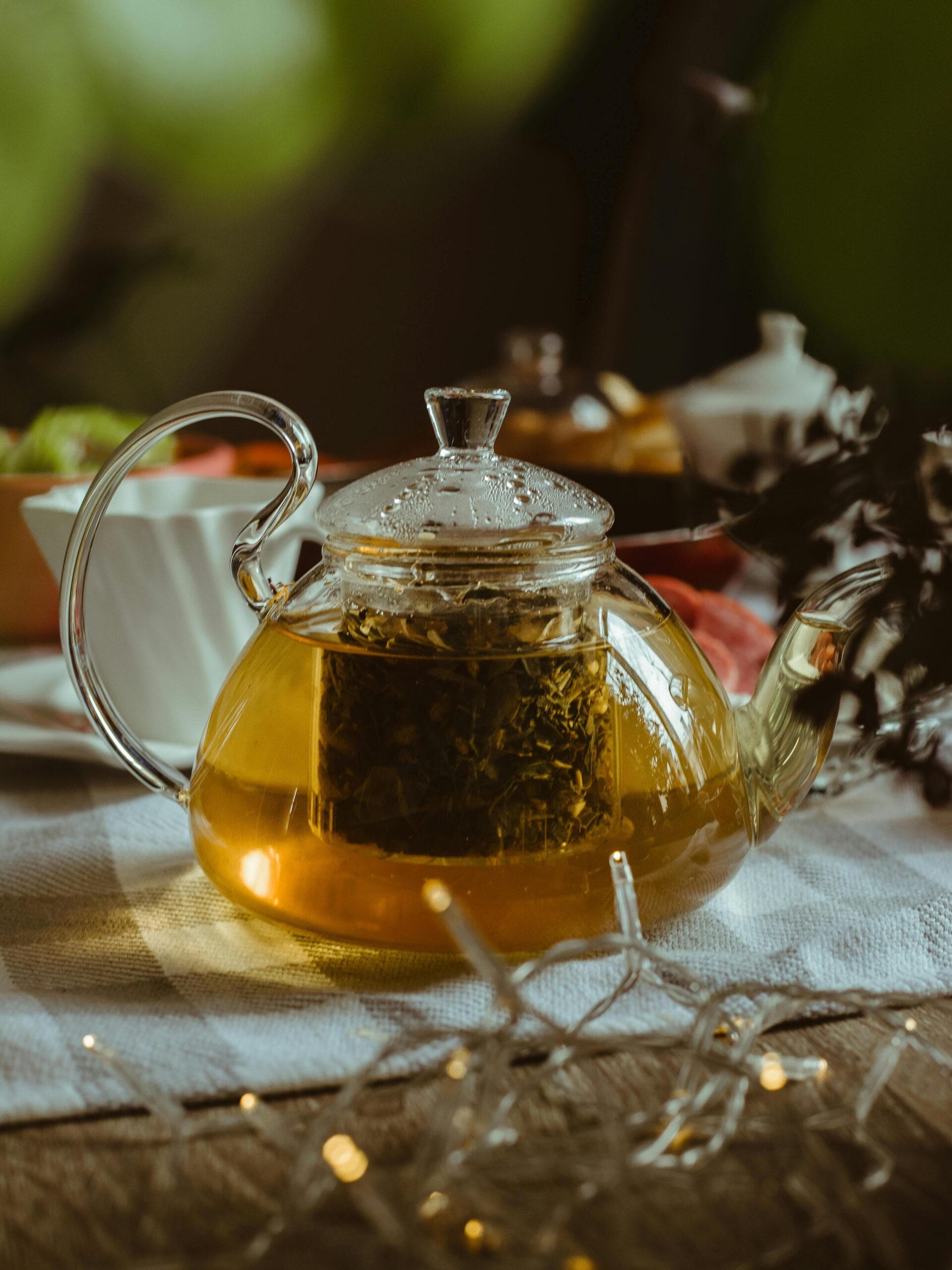
Decoctions stand apart from regular tea brewing methods, offering a powerful way to extract flavors from tougher plant materials. This method works best with barks, roots, and seeds that need more than simple steeping.
Unlike infusions, decoctions require boiling herbs directly in water, then simmering them for 20 to 30 minutes to release their full benefits.
Proper dosage matters greatly in creating effective decoctions. A common guideline suggests using 0.5 to 5 grams of dried herbs per 8 ounces of water as a starting point, though ratios may vary by herb type and desired strength.
This ratio creates a balanced brew that captures the plant’s essential compounds without becoming too strong or weak.
Different herbs may need different amounts based on their potency and your taste preferences. Some roots like dandelion might need longer simmering times, while cinnamon bark releases its flavor more quickly.
The process pulls out antioxidants and beneficial compounds that might remain locked away with standard brewing methods.
The equipment you choose affects your decoction results too. A non-reactive pot made of glass, ceramic, or stainless steel works best since it won’t interfere with the herbs’ natural properties.
Many tea enthusiasts prefer using a dedicated pot for their decoctions to prevent flavor mixing. After simmering, strain the liquid through a fine mesh strainer to remove all plant material.
This technique creates a deeper, more concentrated brew than regular tea steeping – perfect for wellness-focused formulations or traditional medicinal combinations that need maximum extraction.
Equipment Considerations
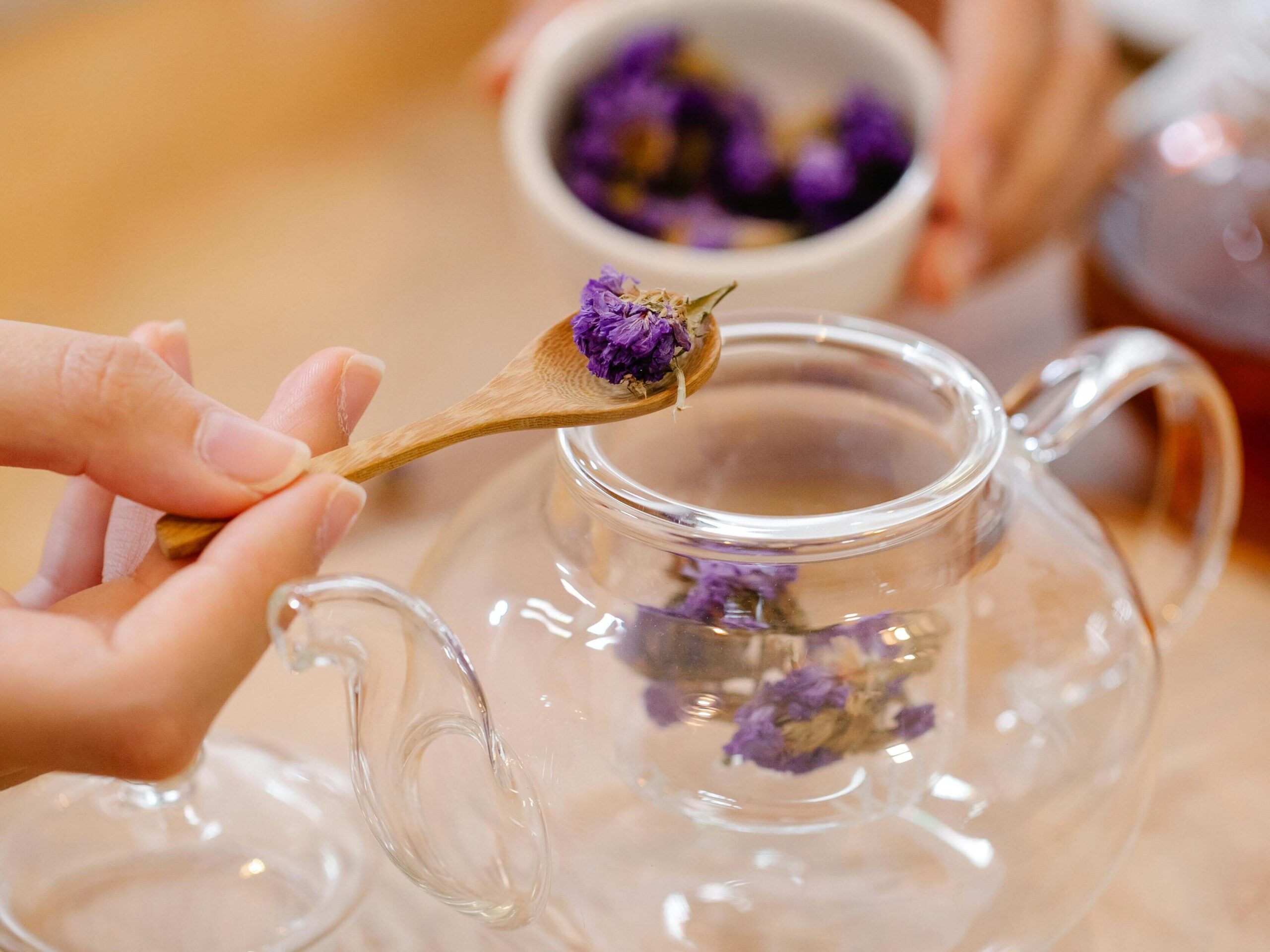
Your brewing vessel makes a huge difference in herbal tea quality. Tea strainers remain the classic choice for most herbal infusions, trapping loose material while allowing oils and flavors to flow freely.
Many tea enthusiasts find that using a lid during steeping captures essential oils that might otherwise escape as steam. For those seeking modern alternatives, the Sumo Tea Pot offers excellent filtration, while the French Press provides a practical option for stronger brews.
Material matters too – glass shows off colorful infusions but loses heat quickly, while ceramic retains warmth longer. Mesh size in your strainer should match your herb type; fine mesh works best for small particles like rooibos, while larger holes suit whole flowers such as chamomile.
Metal infusers may affect flavor profiles of delicate herbs, so silicone or bamboo alternatives might better preserve subtle notes in your cup.
COSORI Electric Gooseneck Kettle with Temperature Control
Five presets span the herbal temperature spectrum—from delicate flowers to hardy roots.
Delicate chamomile and lavender want 175-185°F to preserve their aromatics, while hardy ginger and cinnamon bark can handle a full boil at 205-212°F. This kettle's 5 temperature presets eliminate guesswork, with 18 reviewers praising the precision—tested within 0.5% accuracy by users with thermometers. The 1-hour hold function means you can steep multiple infusions at consistent temperature, exactly what longer herbal steeping times demand.
⚠️ Skip this if you regularly brew for more than two people—the 0.8L capacity suits solo sessions or couples, not family-sized batches. Also requires counter space (10.5-inch footprint).
The Culture of Herbal Tea

Herbal tea connects people across time and space through shared rituals and healing traditions. From ancient Chinese medicine to modern wellness cafes, these plant-based brews carry stories of human innovation and cultural wisdom.
Historical Significance
Tea plants first gained recognition in ancient China around 2737 BC, marking the start of a rich global tradition. Emperor Shen Nung reportedly discovered tea when leaves blew into his pot of boiling water, creating an accidental brew that pleased his taste buds.
This happy accident sparked a cultural practice that spread through Asia and eventually reached Europe through trade routes. Different cultures developed unique rituals around herbal teas, from Japanese tea ceremonies to British afternoon tea traditions.
Ancient Egyptians documented their use of herbal infusions by 1550 BC, using plants like chamomile and mint for both health benefits and religious ceremonies. These early civilizations understood the healing powers of plants long before modern medicine confirmed their properties.
The knowledge passed down through generations created a foundation for traditional medicine systems that still influence our understanding of herbal remedies today.
The 19th century brought a significant boom in herbal tea popularity across continents. Cultural exchanges during this period introduced new varieties and blending techniques to different regions.
People gained access to previously exotic herbs as global trade expanded, creating the diverse selection we enjoy today. This period also saw the rise of tea as both a social drink and a health tonic, establishing its dual role in society that continues in modern wellness movements.
Traditional Medicine Systems
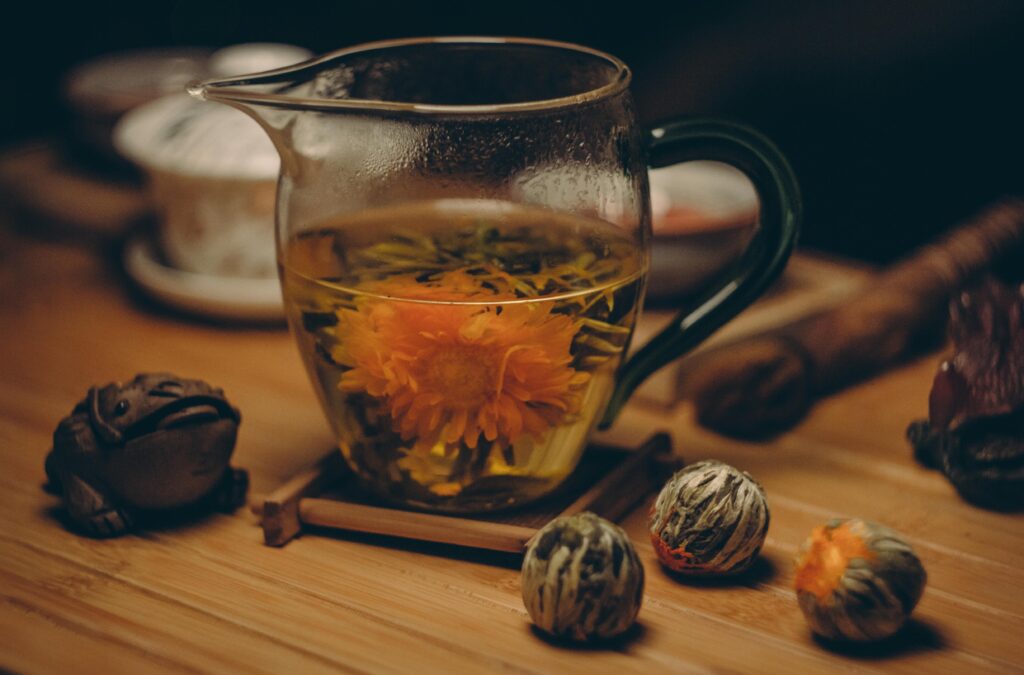
Beyond history, herbal teas serve as vital components in health systems across cultures. Traditional Chinese Medicine (TCM) uses herbal teas called liang cha to restore balance between yin and yang forces in the body.
These teas feature specific ingredients like honeysuckle for cooling effects, chrysanthemum for eye health, and ginseng for energy. Each plant plays a distinct role in addressing different health concerns based on centuries of observation and practice.
Ayurveda from India and Indigenous healing traditions also rely on herbal infusions as medicine. Many modern wellness teas draw from these ancient systems, though often without the deep understanding of plant properties that traditional healers possess.
Research shows some traditional remedies contain compounds with real health benefits – hibiscus may help lower blood pressure while chamomile contains anti-inflammatory properties.
These traditional systems view tea as both prevention and treatment rather than just a pleasant drink.
Tea ceremonies in Japan, Korea, and Morocco transform drinking into a mindful practice that benefits mental health. The ritual aspects of preparation and consumption add another dimension to herbal tea’s therapeutic value.
Modern science continues to study these traditional uses, with some herbal remedies now forming the basis for pharmaceutical drugs. This connection between ancient wisdom and modern research highlights how traditional medicine systems remain relevant in today’s health practices.
Modern Wellness Movement

Herbal teas have become central to the modern wellness movement, with the global market experiencing significant growth as consumers seek beverages that align with their lifestyle values. This movement represents a convergence of traditional herbal knowledge, mindful consumption, and aesthetic appreciation. While many people are drawn to herbal teas for their perceived wellness associations, the category has evolved far beyond its folk medicine roots.
Today’s herbal tea culture celebrates multiple aspects: the meditative ritual of preparation, the sensory experience of aroma and taste, and the visual beauty of ingredients like butterfly pea flower’s striking blue color or hibiscus’s jewel-toned red.
The modern tea consumer often values transparency about sourcing, sustainable farming practices, and the cultural origins of their teas. Many seek out small-batch producers who can share the stories behind their blends – whether that’s a family farming tradition or a cultural heritage being preserved.
This shift represents a broader movement toward intentional consumption, where the choice of beverage reflects personal values around sustainability, cultural appreciation, and mindful living.
Regional Drinking Traditions
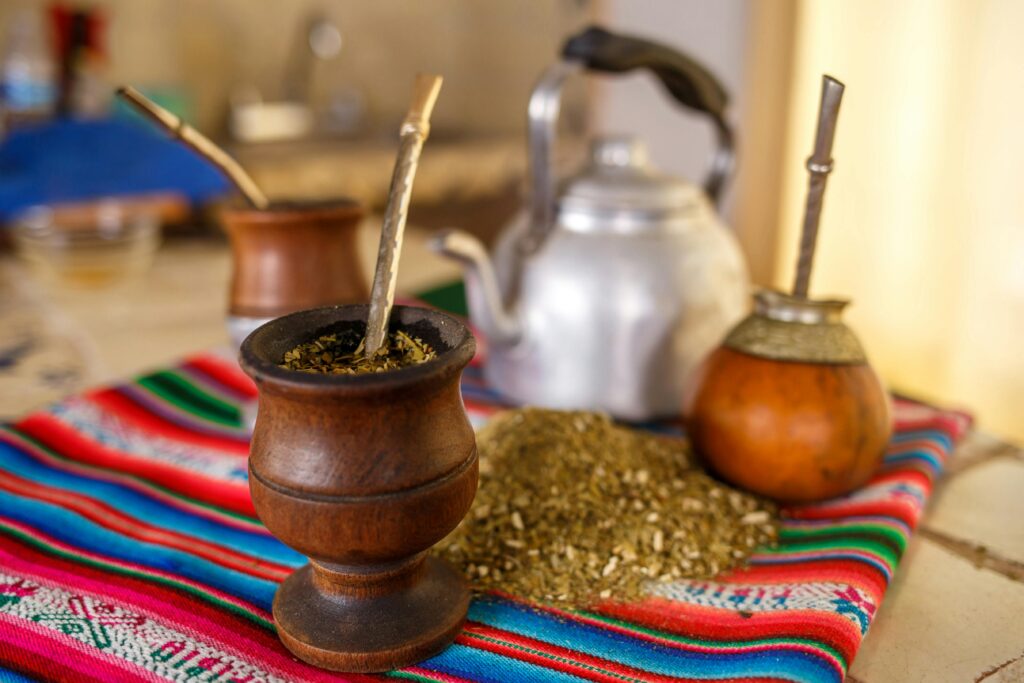
Tea rituals vary dramatically across cultures, each with unique customs that reflect local values. In Morocco, mint tea serves as a symbol of hospitality, with tradition dictating three separate servings for guests – the first mild like life, the second strong like love, and the third gentle like death.
Argentina celebrates yerba mate as its national beverage, where friends often share from a single gourd using a metal straw called a bombilla, creating social bonds through this energizing drink.
Many countries incorporate tea into daily routines that mark specific times or occasions. Japanese tea ceremonies transform simple brewing into meditative art, while British afternoon tea pairs specific foods with different tea varieties.
These regional practices show how tea transcends being just a beverage to become a cultural touchstone. Understanding these traditions helps tea enthusiasts appreciate the deeper significance behind different brewing methods.
Conclusion
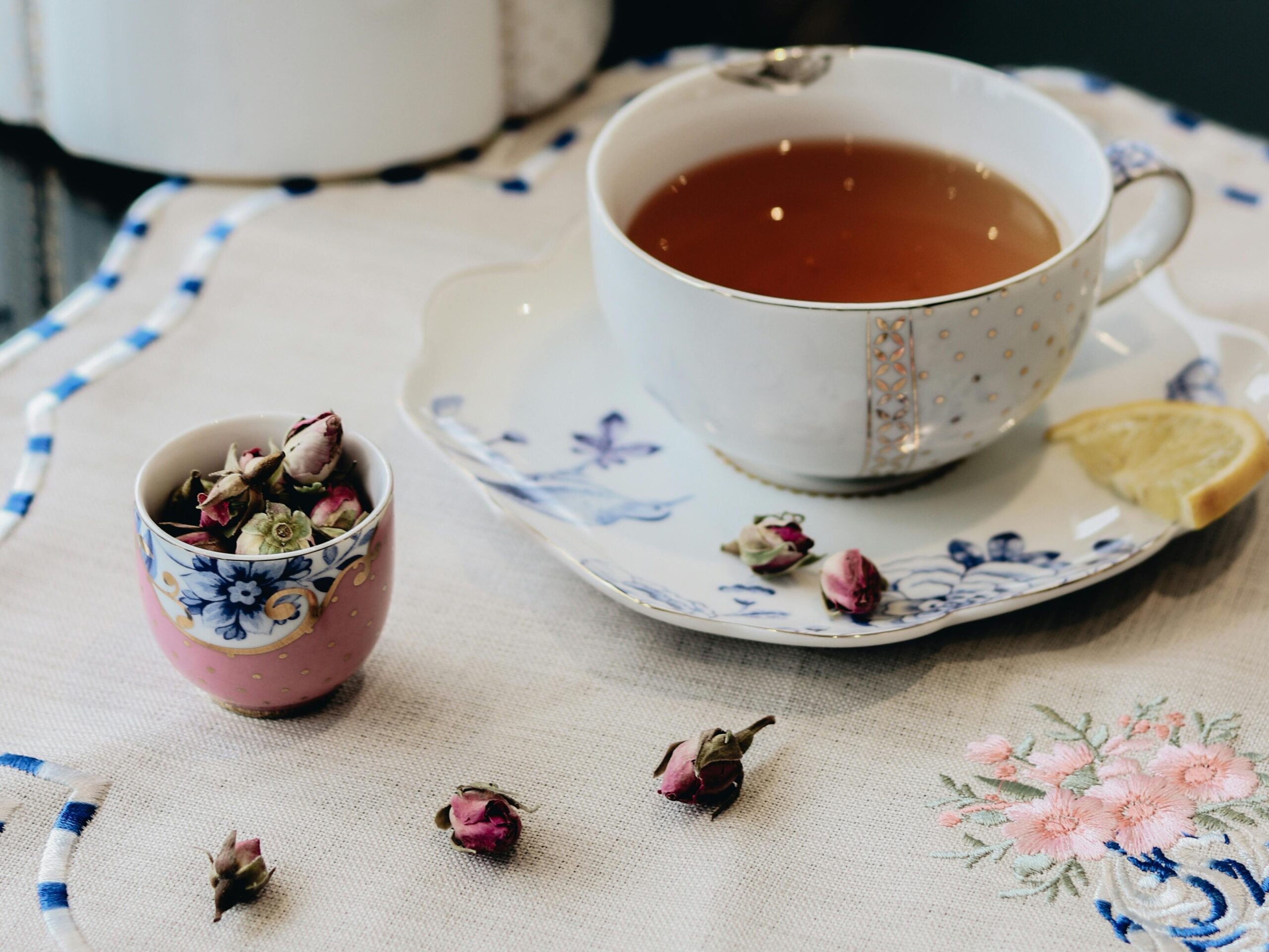
Herbal teas offer a vast world of flavors and benefits beyond traditional caffeinated options. From soothing chamomile to zesty hibiscus, each variety brings unique qualities to your cup.
Quality matters greatly—fresh herbs, proper storage, and careful brewing techniques make all the difference in your tea experience. Regional traditions across continents have shaped how we enjoy these plant-based brews today, connecting us to centuries of wellness wisdom.
Your journey through herbal teas can be both a sensory pleasure and a path to better health, one delightful sip at a time.
If you’re interested in exploring more unique tea varieties, check out our guide on yellow tea types for an intriguing journey into lesser-known teas.
FAQs
1. What are the main types of tea available today?
The main types of tea include black, green, oolong, white, and pu-erh tea. Each type varies based on its level of oxidation, with black tea being fully oxidized while green tea undergoes minimal oxidation. Matcha, a powdered green tea from Japan, and sencha are popular varieties within the green tea family.
2. How does herbal tea differ from regular tea?

Herbal tea is actually a non-tea beverage made from plants other than Camellia sinensis. Common herbal teas include chamomile, peppermint, and dandelion tea, which offer different flavours and health benefits than traditional teas.
3. What makes herbal teas unique in flavor and preparation?
Herbal teas offer an incredible range of flavors from floral and sweet (chamomile) to bold and tart (hibiscus). Each requires specific preparation methods – delicate flowers need lower temperatures while roots and bark benefit from longer steeping times. The diversity of plant parts used creates endless possibilities for flavor exploration.
4. What health benefits does herbal tea provide?
While many herbal teas have been used in traditional medicine systems for centuries, scientific evidence for specific health benefits varies widely. Some herbs have been studied more extensively than others, but most research is still preliminary.
For any health-related concerns or if you’re considering herbal teas for therapeutic purposes, it’s important to consult with healthcare professionals rather than relying solely on traditional uses or anecdotal evidence.
5. Is herbal tea caffeine-free?
Yes, most herbal teas are naturally caffeine-free since they aren’t made from the leaves of the tea plant. This makes them excellent alternatives to coffee and regular tea for those seeking decaffeination or evening drinks.
6. How can I enhance the flavor of my tea?
Tea blending and additives can give a little extra dimension to your brew. Try adding spices like cinnamon, ginger, or a splash of juice to create flavoured variations. Chinese tea traditions also sometimes incorporate flowers or fruits to create complex flavor profiles.
References
- https://chestnutherbs.com/how-to-grow-an-herbal-tea-garden/
- https://pmc.ncbi.nlm.nih.gov/articles/PMC10763305/
- https://www.learningherbs.com/blog/how-to-make-herbal-tea-blends
- https://senchateabar.com/blogs/blog/what-is-tea?srsltid=AfmBOopAyT9xLdbHfgI4q9PNEgAQ6A8CPMMO1jdb62F39uLOdmWTGgtl
- https://teapigs.com.au/blogs/blog/types-of-herbal-tea?srsltid=AfmBOorzhrHP1hjEX90VgEgFZVYu6zMNQJ2Cvu5XRbrAWQKu0PjF5B_V
- https://teapigs.com.au/blogs/blog/types-of-herbal-tea?srsltid=AfmBOooaw2R5qaZUD7fbrxy8N_h_N8yc-YSrUTXqYHrUUrQjJLzsQpIx
- https://teapigs.com.au/blogs/blog/types-of-herbal-tea?srsltid=AfmBOorA4E_bWJUxPJz_DzHab0MIP7xhdbV__7fwTdCs6osUXJ6j8P9W
- https://pmc.ncbi.nlm.nih.gov/articles/PMC9581206/
- https://www.researchgate.net/publication/377080084_Preliminary_exploration_of_herbal_tea_products_based_on_traditional_knowledge_and_hypotheses_concerning_herbal_tea_selection_a_case_study_in_Southwest_Guizhou_China
- https://simpltea.com/types-herbal-tea/?srsltid=AfmBOorgp7JlegfUPgNA_s8dNwFeOf5V4BXCGGYAe34ZJyrR_jnm1zdr
- https://pmc.ncbi.nlm.nih.gov/articles/PMC2995283/
- https://www.tastingtable.com/1805001/peppermint-teas-ranked/
- https://pubmed.ncbi.nlm.nih.gov/16767798/
- https://www.alveus.eu/blog/essential-rooibos-guide
- https://pmc.ncbi.nlm.nih.gov/articles/PMC10774856/
- https://www.medicalnewstoday.com/articles/318120
- https://www.artoftea.com/blogs/tea-profiles/your-guide-to-botanicals-and-herbal-tea-ingredients
- https://artfultea.com/blogs/101/types-of-tea-a-comprehensive-guide?srsltid=AfmBOoop0LKAR2kVJrKT1QFcQUctUxqbSm1ZUW9qP49wu4NvEh1afkf4
- https://simpltea.com/types-herbal-tea/?srsltid=AfmBOoquM-YQY5nwQDHMssfu8pc_td3uQyEIXbKR4r1V5v7qZS0E2Jwc
- https://jyyna.co.uk/moroccan-mint-tea/
- https://assendelft.co.za/posts/african-tea-recipe/
- https://pmc.ncbi.nlm.nih.gov/articles/PMC6321617/
- https://danfetea.com/blogs/tea-blog/comprehensive-guide-to-yerba-mate-tea?srsltid=AfmBOoqrpCHGiTlHUmcXz_MdSfjf5stEBFp652ux169OIrXg576_xvDL
- https://pmc.ncbi.nlm.nih.gov/articles/PMC8103161/
- https://www.kuchatea.com/blog/adaptogens-tea/
- https://www.tea-and-coffee.com/blog/wellness-tea?srsltid=AfmBOoq4ac_MLAZoq2t7hM3ZBclyF9wlPQti5QzqwMfoNqSdrXvHs3JG (2025-01-28)
- https://www.researchgate.net/publication/334061714_Herbal_Teas_and_their_Health_Benefits_A_Scoping_Review
- https://artfultea.com/blogs/101/types-of-tea-a-comprehensive-guide?srsltid=AfmBOoqBYk3NpwzXeZdVRUCivVgwP-3MvOP9V93xdF2_bvUzUl1wl8Iv
- https://simpltea.com/types-herbal-tea/?srsltid=AfmBOor3C0HReS0-GJTyXVoscB5xpnQ4oOb4s6afX5bYluzI9frzGdy9
- https://tearebellion.com/blogs/blog/master-the-art-of-tea-tasting-and-expand-your-tea-palate?srsltid=AfmBOoqFy-jm-QvFrkZw-_5BJ6Z7NDn9E869RhaGjdRNy5MDOoyi7_DL (2025-01-15)
- https://besttealeaves.com/tea-grade-guide/
- https://artfultea.com/blogs/101/types-of-tea-a-comprehensive-guide?srsltid=AfmBOopxMdBV101afDzi9C8DosbtGnwBbcK1-EKjIkludvmMoYaupC4K
- https://jyyna.co.uk/tea-taste/
- https://verdanttea.com/brewing?srsltid=AfmBOop2Kh24pODtcu0FcOkt3Ugx0SxwRobNNox1RRz_cQ9Sc9lcsKZ0
- https://artfultea.com/blogs/101/tea-brewing-temperature-guide?srsltid=AfmBOop38tBp4UQi0p1-LvbhQ3HkJIH4lpvbf939K9kxX5QzBHlXQxWg
- https://theherbalacademy.com/blog/a-deeper-look-at-herbal-infusions/?srsltid=AfmBOooSiZjkEqc7NnQnIhGrjYkI89AzoAtWJmF3SFhw1FJLe1oZSJaj
- https://chestnutherbs.com/herbal-infusions-and-decoctions-preparing-medicinal-teas/
- https://www.paperandtea.com/blogs/journal/our-guide-to-herbaltea
- https://simpltea.com/types-herbal-tea/?srsltid=AfmBOopKmBtRIlttCK3IY0XCBAw06RwnSh4NOdXqrL_mehjBS8wDNNln
- https://www.redrockteahouse.com/blogs/articles/a-comprehensive-guide-to-herbal-tea?srsltid=AfmBOopzMr9MoqyrVq0ZoYBwoZK-kF2Xrej0KaNUQD5DTvgeRTgFsKTk
- https://7tea.de/en-gb/blogs/7tea-blog/die-rolle-von-tee-in-der-modernen-wellness-bewegung
- https://twinings.co.uk/blogs/news/tea-culture-around-the-world










